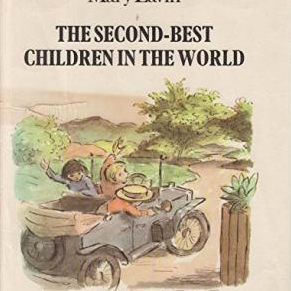Writing Archive
- All
- Collected Works
- Letters to Young Writers
- Seasonal Stories
- Statements
Read, read, read
You would be amazed by the amount of writers who just do not read. Especially older writers who believe that they are the only ones who deserve to be read. Their reading world shrinks. They believe that they have written enough that they can afford now to come indoors. They close the curtains. They deposit…
Allow the Reader’s Intelligence
Never say too much in your story or your poem or anywhere else for that matter. Never dictate. (Alas, he dictates). Avoid pointing out what your stories mean. Trust your reader. One of the great rules of writing classes is “Show, Don’t tell.” What this means is that you must guide a reader through unfamiliar…
Blurbs (or The Art of Literary Porn)
Blurbs are the older writer’s nightmare. Either he does them or he doesn’t. If he doesn’t, he’s an asshole. If he does, he’s an asshole too – unless she blurbs yours, whereupon she is an angel, a godsend, a creature divine. But how do you get a blurb in the first place? You beg, you…
Who’s Your Ideal Reader?
There is often a lot of talk about who is your ideal reader. Ultimately it has to be you. You are the one who has to take responsibility for it in the end. You must be prepared to listen to the deepest, most critical part of yourself. When you write something, try to imagine yourself…
In the Morning, All Will Be Forgiven
IT is difficult to tell a story about Frank McCourt since the probability is that there’s always someone else around who has a better story to tell — not least Frank himself who could, of course, shape a word better than anyone, and is in all likelihood, right now, making the audience laugh and cry in the vast upstairs.
Creating Characters
Discovering who your character truly is, is one of the great joys of fiction writing. There is little better than creating someone from the dust of your imagination. But inventing a character from scratch is not simply a matter of ransacking the low shelves of the nearest fiction-supermarket. Your characters must be real. Full. Complicated.…
The Habit of Hoping
Find your life – beyond your writing life – worth living. Be in the habit of hoping. Allow yourself a little joy, even in the face of the world’s available evidence. In fact, create the evidence everywhere and anywhere you can.
Write Yourself a Credo
Sit down and write yourself a credo. What is it that you believe in? What is that you want to do with your writing? Who is it that you want to speak to? What is your relationship with language? Try this at different times of your career. Maybe even try for a credo every year,…
Seeking Structure
Every work of fiction is organised somehow – and the best of them are more profoundly organised than they let on. Chapter, book, verse. There is method in the story-telling madness. Our stories rely on the human instinct for architecture. Structure is, essentially, a container for content. Think of it as a shape into which your…
Overdue: the Country of Literature
A couple of years ago a 57-year-old in Hancock Michigan was searching through the attic of his family home, when he opened a box and a dusty copy of a book called “Prince of Egypt” fell out. He flicked to the back cover and discovered that it was a library book forty-seven years overdue. Over the years, the book had been misplaced and boxed and re-boxed and misplaced again.
Take a Break
Every now and then, take a break. Go on holiday. Learn how to like writing again. Miss it for a week. And then rush back to it.
No Rust on Your Sentences Please
Now that you have rushed back, you should write your work as if you are sending it to your reader one careful sentence at a time. Prose should be as well-written as poetry. Every word matters. You must test for the rhythm and precision. Look for assonance, alliteration, rhyme. Look for internal echoes. Vary your…







